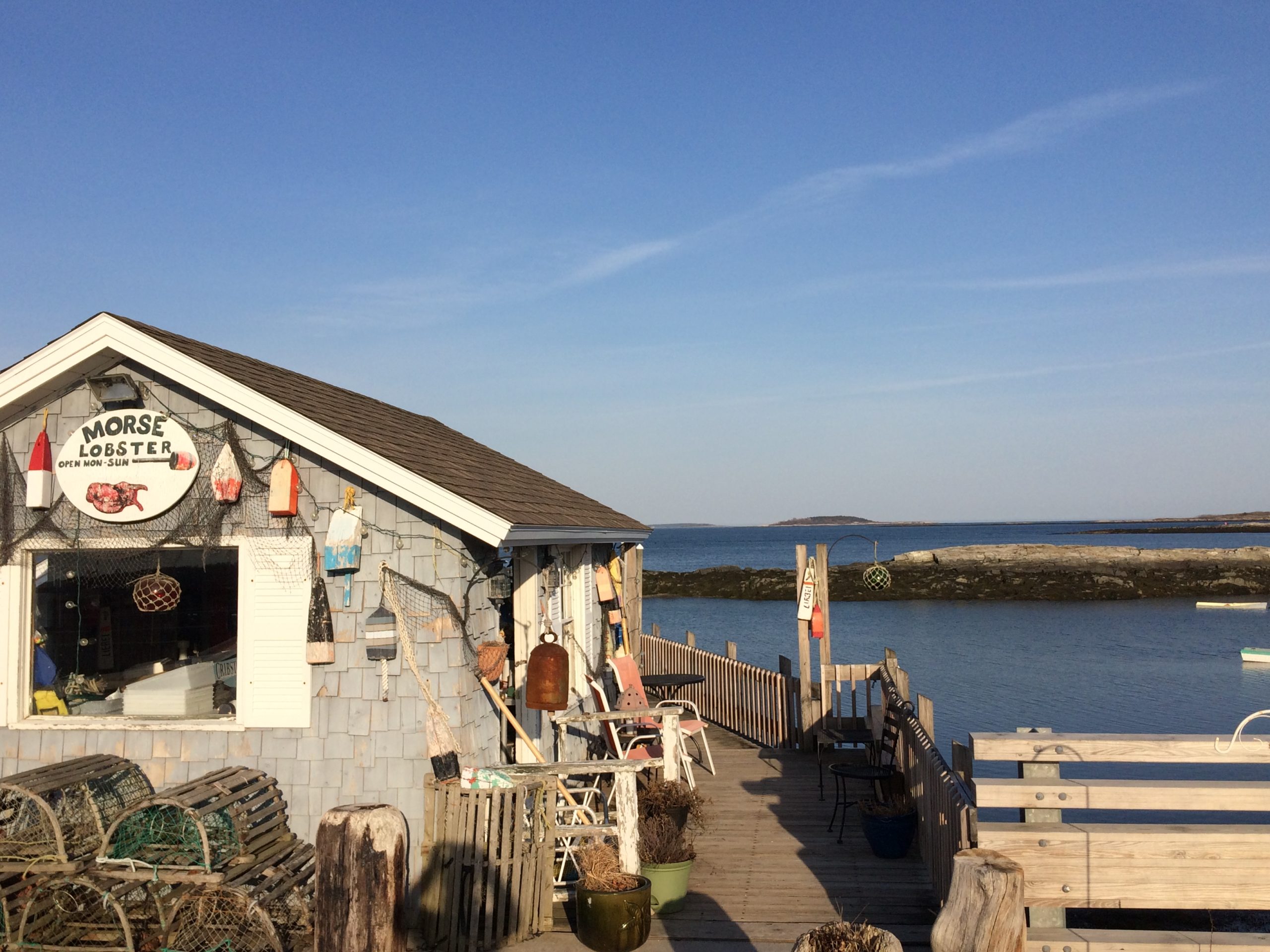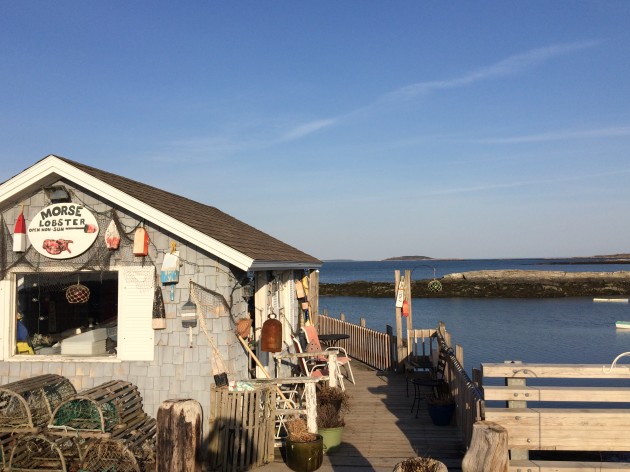
Post-Holiday Glee: My First Purim in Maine

Living in a place with a tiny Jewish community does not mean that celebrating holidays has any less ruach, or that the festivities are any less meaningful or in any way diminished—to the contrary! I can’t stop feeling cheerful—almost giddy—about how great my first Purim in Maine was, after recently having moved here from Connecticut. It had all the expected ingredients: Megillah reading, groggers, matanot l’evyonim (gift for the poor), hamantaschen, mishloah manot, and a festive seuda—but the different settings and all the new people I met made it feel like an exhilarating and familial discovery.
Since I moved here last summer, I have worn a tallit for the first time, had several aliyot, and felt deeply moved at a Kol Nidre service played by a cellist, while sitting next to my partner. This may not sound all that unusual, unless you’ve spent the last thirty years—the entire time since you became Jewish—in a modern orthodox shul, like me. But in all fairness to my old shul—which I consider my extended family—I should tell you that it was there that I learned how to chant the Megillah (for our annual women’s reading), and also where I have delivered several D’var Torahs over the years.
Moving to Maine has opened my eyes—and heart—to options of Jewish observance that I had not considered before. These options were all technically available in my old home-town, but I never took advantage of them for the simple reason that I was comfortable where I was. After all, I had an orthodox conversion, and raised my kids in a “conservadox” kind of way, by sending them to an orthodox day-school (because it felt like family) albeit with a diverse student population. I belonged to a left-leaning, eclectic modern orthodox congregation (more loving family) and was relatively observant, two things that together had strengthened my identity as a Jewish woman. But now, mature and experienced in the identity into which I had to earn by commitment and compromise, I’ve begun to feel more relaxed with the idea that there are many ways to live a Jewish life and still feel Jewish.
A few days before Purim, I texted the rabbi in my old shul located in a large town boasting 27 synagogues and two day schools in its “greater area.” I wondered if he knew of a synagogue in the Portland area he could recommend, where my partner and I could enjoy a traditional Megillah reading in Hebrew. His answer was “Just come home,” because to him, no sensible observant Jew would move to Maine if they had a choice, and I guess he misses my family’s participation. In 2006 he said the same when I decided to take my three sons for a year to Norway—the country where I was born and raised—as my father recovered from lung cancer. “Don’t go!” the rabbi pleaded, seeming unable or unwilling to recognize how important it was for my boys, myself, and my family to have this time together, and how this, too, was a priority for me. Why go to a place that so obviously would mean a more difficult observant Jewish life, I heard him ask.
Turns out that the year in Norway and the time I have spent so far in my new home-state of Maine, has afforded me some of the most enriching and identity-affirming Jewish experiences of my life. In a small Jewish community there’s a unifying force that brings Jews from all walks of life together. Gathering for a vegetarian potluck Hanukkah dinner or a last minute Purim seuda simply feels special, like a gift. When Jews are few and far between, organizing a shared holiday meal with strangers or inviting people you have just met to sit in your sukkah somehow ups the ante on the experience of sharing the mitzvah together.
When I lived in Jerusalem for seven months, every Shabbat was saturated with a profound sense of a holy place and a sacred time, but there, it surrounded us, sweeping us along as if we were carried automatically on the crest of a wave toward something so much larger than us. In Maine, like in Norway, I have a more grounded experience, since the smaller community has to unite in getting together to create that movement. All of us are quietly aware that if we don’t rally, it won’t happen.
After the traditional Megillah reading we attended at the only immigrant-era European-style synagogue remaining in Maine, the now egalitarian Etz Chaim in Portland, we moseyed over to the Maine Craft Distilling with its hipster location in Munjoy Hill. Here, a second, more rowdy story of Esther was chanted in the presence of a costume clad crowd of all ages, paired with tasting menus of their spirits, vegetarian tapas and later, live music and dancing. Who would have thought that there would be such an awesome Purim party in Maine? Looking at all the people around me, it dawned on me how in every city and town, great and small—all over the world!—Jews were gathering like we were to share in the celebration of Jewish survival. But I also became aware of how in a place like Maine, with its small Jewish population, the same celebration offers a uniquely invigorating experience.
The next day, we invited some new friends to enjoy a traditional Purim meal or seuda at home, and lacking a Judaica store where I might have easily picked up a few Purim-themed decorations, I instead made them myself, which ended up being more gratifying than I had thought. Gathered around the table, I shared a thought-provoking essay written by a friend inviting a feminist reading of the Book of Esther, which in turn ignited a lively conversation between mouthfuls, laughter, and l’chaims.
So far, I can attest that making a Jewish life in Maine is the way life should be (the state slogan being, “Maine: The way life should be.”) Being a Jew in a place where “things Jewish” are not taken for granted can be deeply identity-affirming in its own right.
The views and opinions expressed in this article are the author’s own and do not necessarily reflect those of Lilith Magazine.



